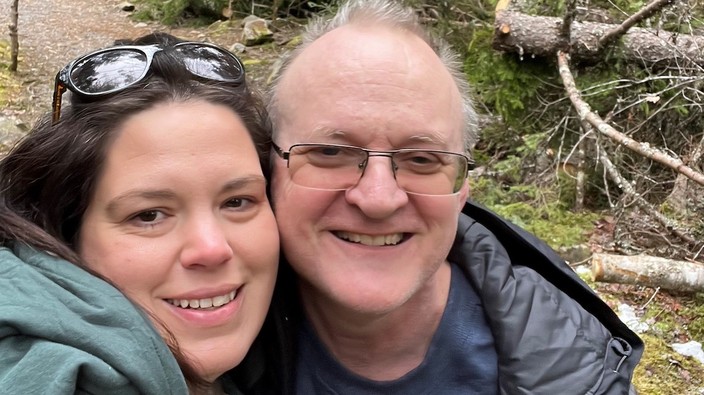desperate for answers, jennifer and don secured a referral for a neurologist in halifax. this meant more appointments, more tests and, eventually, a fateful phone call on september 9, 2021.
“the doctor says it’s definitely als,” jennifer recalls the words out of don’s mouth.
dealing with an als diagnosis
the journey to a diagnosis had already been a tough one. it was during the covid-19 pandemic so jennifer was not allowed to attend don’s appointments. hospitals and other healthcare facilities also had their attention pulled elsewhere, which added a layer of uncertainty.
don’s sister had been diagnosed with als in 2020, and with no prior understanding of the disease’s genetic component, jennifer had previously put the possibility out of her mind.
“we didn’t realize that there was a genetic component to the als,” jennifer says of her feelings prior to don’s diagnosis. “we actually chalked it up to, ‘ok, now there’s no way it’s als because what are the odds of you and your sister having als?’”
jennifer sat silently on the phone. as an executive in the information technology and cyber security industry, she was on a work trip to montreal at the time. her personality, which she says is a key to success in her professional career, is rooted in problem solving first and dealing with emotions later.
 8 minute read
8 minute read








